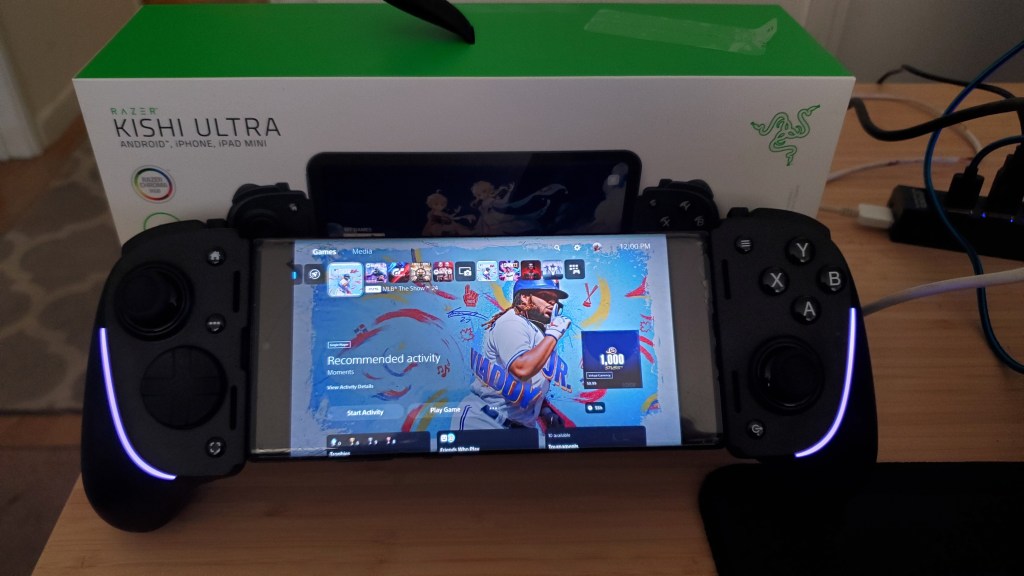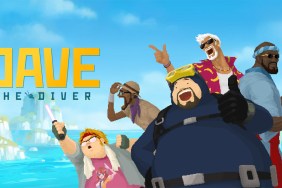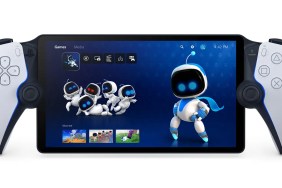Mobile gaming has come a long way in the last few years, and that includes being able to play games on your PlayStation of choice from your iOS or Android device. PlayStation Remote play, in itself, dates back to 2006, and originally, the PSP and PS3 were pretty good at it. Not all games supported it due to the PSP missing a second analog stick, but the release of the PS Vita in 2012 remedied that, and almost all PS4 games could be played via remote play. For those of us with fairly big hands, the controls could get a little cramped smashing dingers in MLB The Show or shooting guys in Uncharted, but we managed and could play our games from anywhere the WiFi was strong and fast enough.
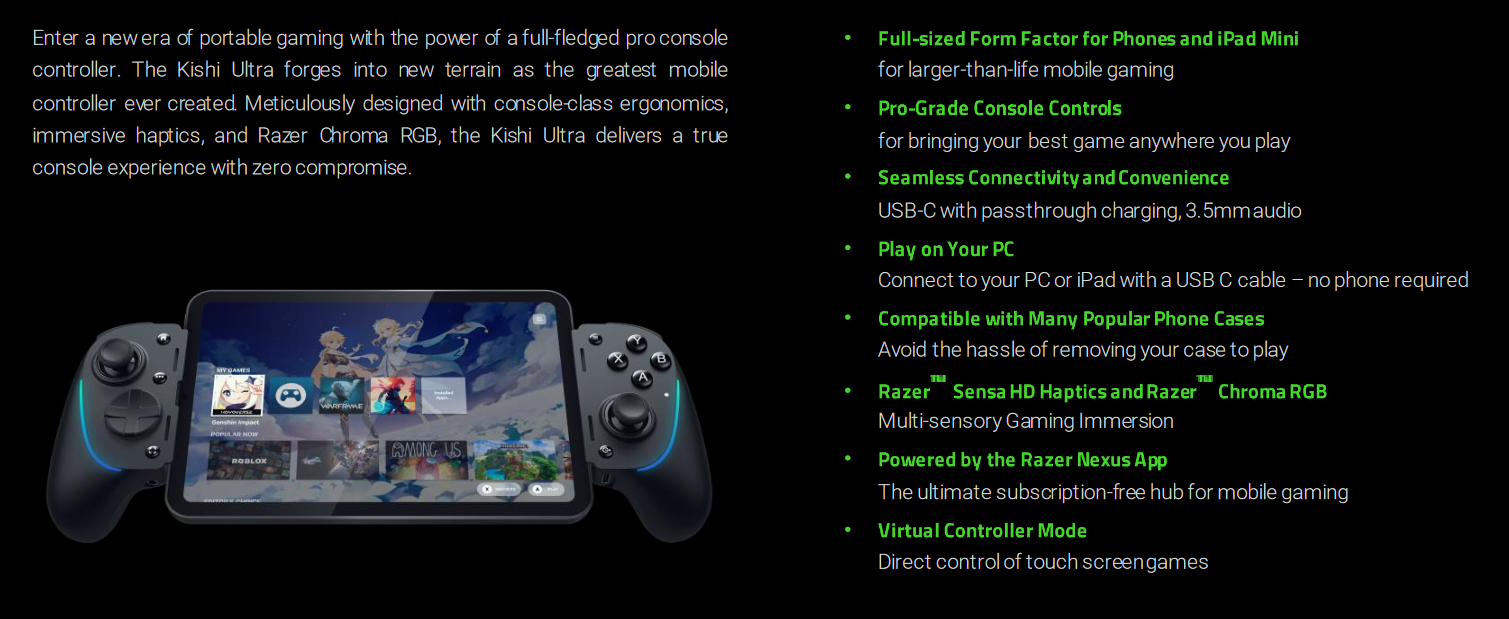
With the progression of more powerful smartphones and tablets, mobile games started to mimic console gaming and have become more and more popular. Playing a first-person shooter on your touchscreen phone is no easy task, though, and different companies stepped in to remedy that situation. Razer released their first phone controller, the Kishi, in 2020, and it got decent reviews across the board but lacked some bells and whistles like a headphone jack. Their Kishi V2 was released in 2022 (two variants) and solved a few of the issues their first controller had, but if you had a larger device like an iPad mini that device was too big for the controller. The controller itself was a little small for bigger hands but it was a step in the right direction and made more games easier to play.
Razer Kishi Ultra – XL Gaming
I recently attended GDC in San Francisco and spent a few hours talking with their team about their latest controller, the Razer Kishi Ultra, and what they hoped it would bring to the gaming world. They were also nice enough to send me my own Kishi Ultra to try out a couple of weeks ago. I have since traveled across the country, using it in airports and hotels for both PlayStation Remote Play and mobile gaming in general, and I am thoroughly impressed.
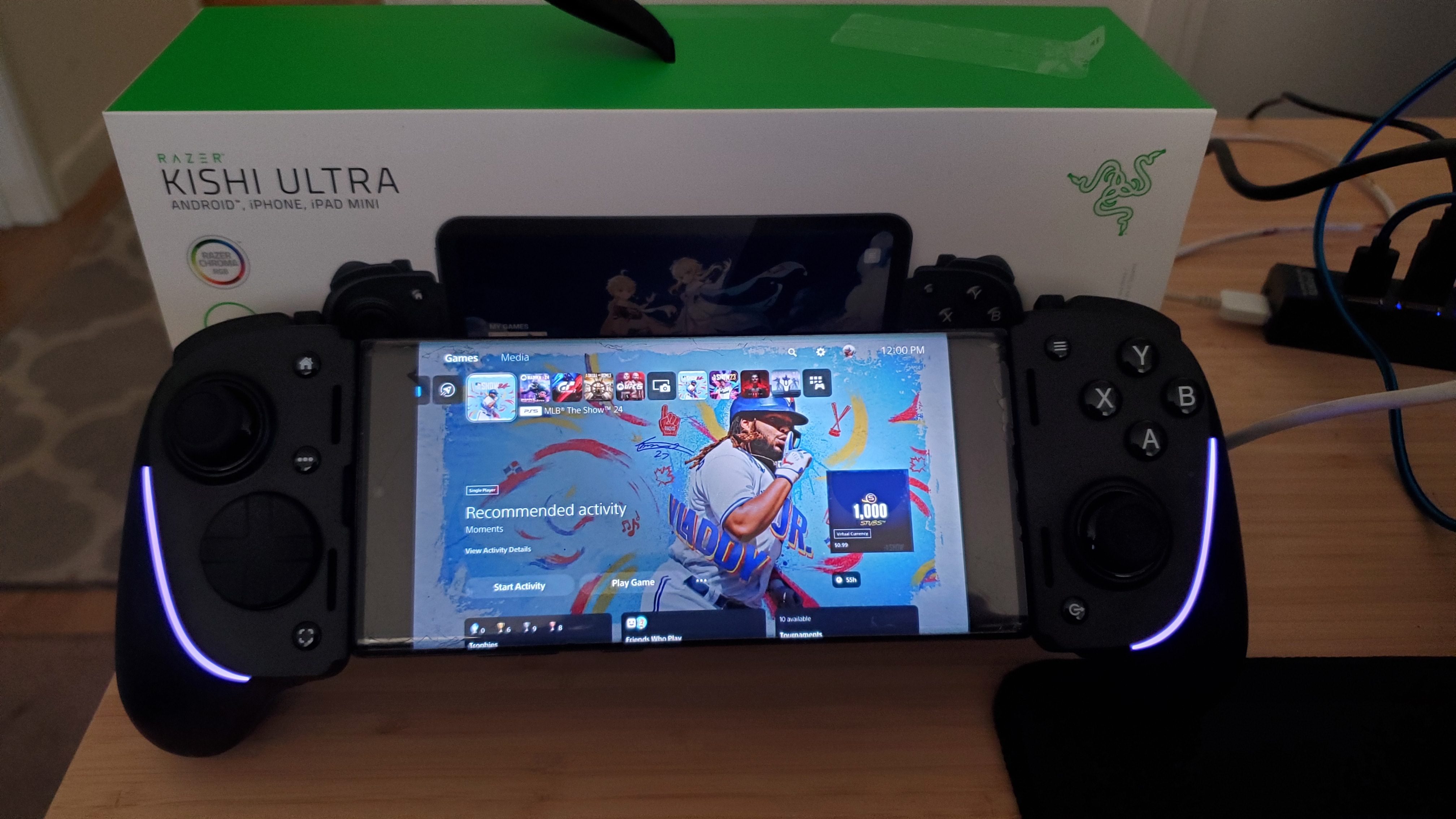
The first thing I noticed upon taking the Kishi Ultra out of the box is its size. This isn’t a small, cramped controller, it is instead a full size console controller, split in half. Would I prefer it to have PlayStation buttons? Sure. Have I used a PS controller long enough to have the PS controller memorized? Of course. I’m currently using it with my Samsung Note 10+ but you can use any device that measures up to eight inches diagonally and has a USB-C port. The iPhone 15 pro and the iPad mini both fit easily, and the controller comes with pre-made cushions for each device.
Razer Nexus Launcher
In order to use your new controller, you’ll have to install the Nexus app from your app store. It requires iOS 17/Android 12 or higher to install, but that shouldn’t be an issue if you have a newer phone or tablet. The app is pretty simple to use, and you might just find a new favorite game hiding in their suggestion boxes. You can also find other streaming apps for XBOX, Steam, and GeForce Now ready and waiting. You can also find a handful of emulators that work great with the Kishi Ultra controller, but we won’t get into them for legal reasons.
Setting up PlayStation Remote Play
You have two options for using the Kishi Ultra for PlayStation Remote Play. You can use the native app put out by PlayStation, or you can use an aftermarket app call PSPlay for Android or MirrorPlay for iOS. Both are fairly simple to use, but require a few extra steps to work properly.
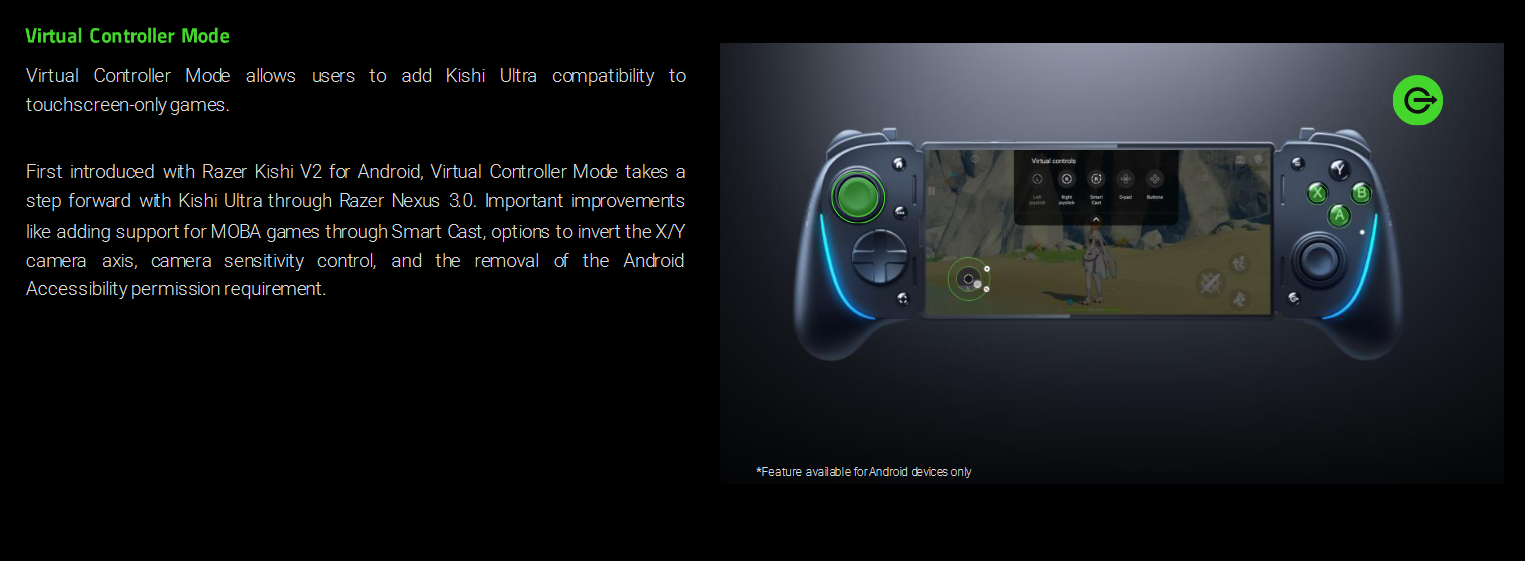
The Kishi Ultra has a virtual controller that you’ll need to set-up for the touch screen controls in order to map the proper buttons while using the official PlayStation Remote Play app. The PSPlay app doesn’t require that step, but in order to use remote play away from home with it or MirrorPlay, you’ll need to know your home I.P. address and need to add port forwarding to your router. The native PlayStation app doesn’t require that step.
Zero Latency Gaming
With the Kishi Ultra plugged directly into my phone, I never felt any controller input lag. This would have been a deal breaker for playing MLB The Show 24, and would have made my Warzone gaming unbearable. You can connect the controller to your PC or even your full-size iPad with a USB cable, and even then, there is zero input lag. I played Diablo IV on my laptop using the controller, and then switched over to remote play and played on my PS5, and the experience was just about the same, albeit a smaller screen on my phone.
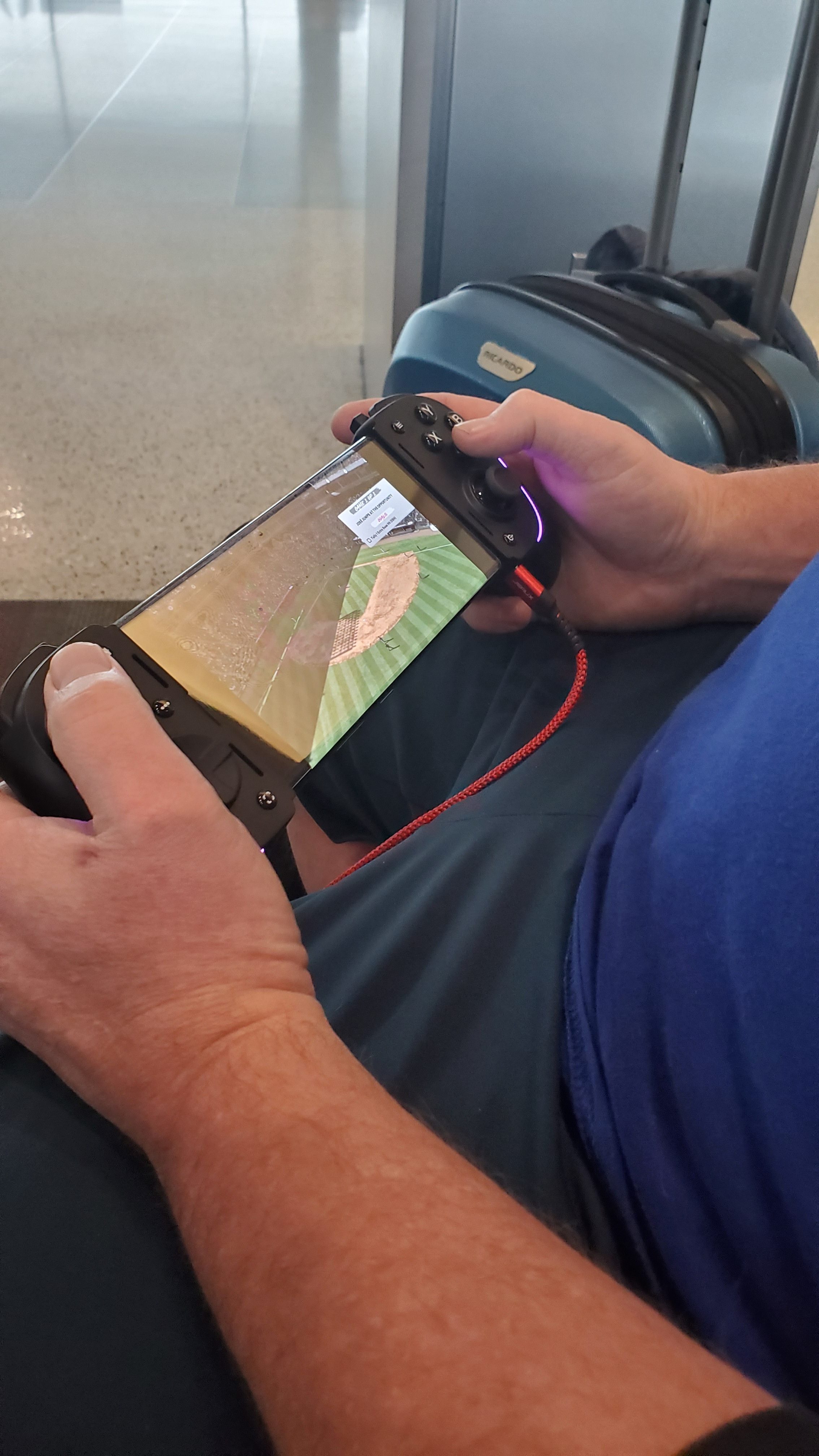
The Improvements
Razer took a lot of information from gamers and applied what they learned to this device. They included a headphone jack, pass through charging so you can game without having to worry about your phone’s battery, and added easy to use screenshot and share buttons. They also gave us the ability to customize the buttons to our liking, and that’s a definite plus. The controller still lacks Bluetooth and has no internal battery itself, but with the direct connection to your device, it probably works better without it.
Conclusion
Razer has been going out of their way to talk to the gaming community in order to create better products that gamers actually want. Their recently released Blackshark V2 (2024) gaming headset is case in point, and actually pairs nicely with the Kishi Ultra controller if you are into Call of Duty: Warzone Mobile.
Razer’s Kishi Ultra not only takes your mobile gaming to the next level with adjustable haptics, pass through charging, cool RGB effects, and a headphone jack, but works great with PlayStation Remote Play too. If you are tired of using skimpy controllers, step up to the XL level and grab one of these.
